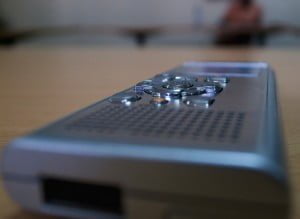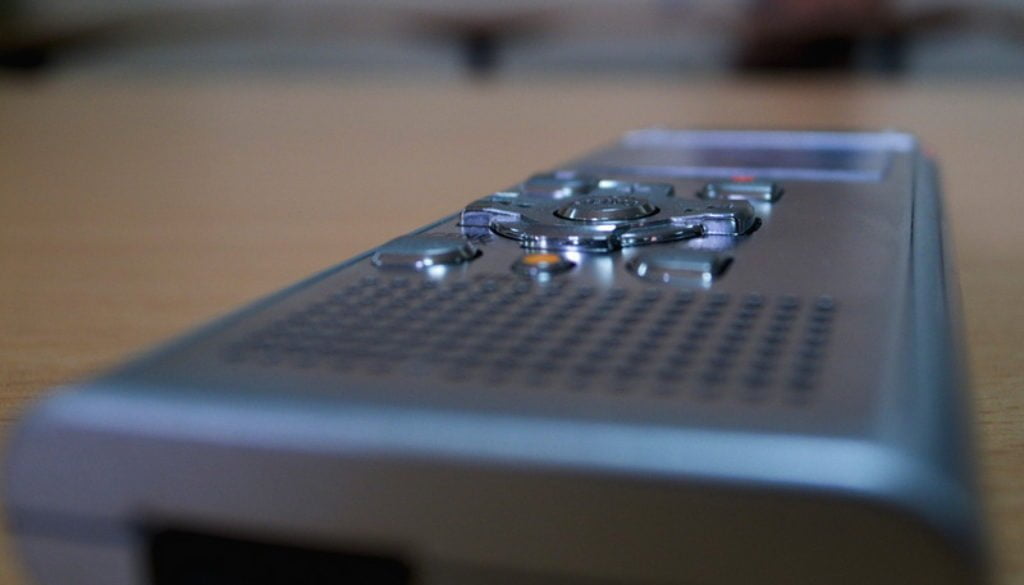Ten tips for giving a better interview
Maria Carter Have an exciting new paper that deserves a lot of press? Does the thought of talking to reporters tie your stomach in knots? As a reporter who spends each and every day interviewing experts like you, I’d like to offer you some tips on how to share your research far and wide without losing sleep.
Have an exciting new paper that deserves a lot of press? Does the thought of talking to reporters tie your stomach in knots? As a reporter who spends each and every day interviewing experts like you, I’d like to offer you some tips on how to share your research far and wide without losing sleep.
1. Journalists are not the enemy! No matter what you heard in media training.
If you’re lucky enough to have had media training, you might have heard something like, “journalists are trying to lure you into a ‘gotcha’ situation.” Or maybe the guidance wasn’t that bleak, but your trainer warned you to “stay on message.”
This is misguided advice. Generally, we are on the same side. As reporters our goal is often to let the world know about your work! A reporter or editor thought it was interesting and thinks the audience will be interested too. Sometimes being too “on message” can make your work seem less interesting and make you appear wooden. Yes, thinking through how to explain something can be a good exercise, but not to the point where you’re an automaton afraid to say anything else.
2. Ask your own questions about the interview or story.
We’re going to ask a bunch of questions, so feel free to ask us a few too. Journalists can be as guilty as anyone of speaking in industry jargon. Ask as many questions as you need to feel comfortable.
- What’s the focus of the story?
- What kind of pictures, video, or sound will you be gathering?
- How long will the interview be?
- When will the story run?
- Where will the story be appearing?
3. Trust me, you’re an expert.
Many journalists are looking to localize a national or international story. That means we want to talk to someone working at a local university, hospital, or research institution. Even if the story doesn’t focus on your particular area of research, you are still more of an expert in the general field than 99.9% of our intended audience. Plus, you can give us insight into any local issues that might connect to our topic.
4. It’s okay to say, “I don’t know.”
So I just told you you’re an expert, but we all know there are lots of unanswered questions in science, so if you don’t know or it hasn’t been studied yet, say that. Sometimes this makes people uncomfortable, but it shouldn’t.
5. Keep it simple.
Most reporters are writing for a general audience. Most of the audience isn’t going to understand overly technical explanations filled with scientific jargon and acronyms. So try to break concepts down. Use language a high school senior could understand.
How would you explain this to your cousin at Thanksgiving dinner? Analogies can be really helpful. Find a way to relate your work to something familiar and it instantly becomes easier to understand.
6. Don’t talk down to me.
Remember how I said reporters are generally on your side? Well, if you condescend to them, that becomes less likely. This doesn’t happen often, but it does happen. We may not have a PhD, but we aren’t dumb and neither is our audience. We are looking to understand something new and to share it with others.
7. Tell us a story.
Stories are gold. They draw people in and help them connect on an emotional level. If you started researching traumatic brain injury because your brother was in a car crash, tell us about it and then tell us how your research might help people like your brother. The stories don’t have to be that personal either. It could be a mishap or involve difficulty. Did you go through dozens of species of flatworms before finding the one that would work for studying cell regeneration? The reporter would love to know about that. Not every problem or detail will make it into the finished product, but it will help make your piece more relatable and give people a deeper insight into the work you’re doing.
8. Stick to the schedule.
I get it you’re busy. I’m busy too. If you’re in the middle of something huge or leaving for well-deserved vacation and really can’t break away for an interview, be up front about that. It will save us both a lot of frustration. Reporters work under deadlines so if we schedule an interview and for some reason you can’t make it, let us know as soon as possible. We’re probably on the hook for a story that day either way.
Try to coordinate with your institution’s media department. For example if they send out a media release about your work, make sure to be available around that time. Check your calendar and don’t schedule a lot for that day or the day after. On at least a few occasions, by the time a press release has gone through revisions and is finally sent out, I have found the researcher is out of town or has a full day of meetings booked. It’s uncommon but happens enough to be worth mentioning.
9. Be available for follow up.
Answering a few follow-up questions can make the difference between a story that gets most things right but has a few annoying errors and one that really shines. During the interview, I’m nodding, thinking I’m really understanding everything you are saying. When I go to write the story, I may realize that I missed something, forgot to ask a really obvious question, or am unsure how to word something correctly.
The reporter probably already has your phone number and email address but consider offering them your cell phone number too, especially if you might be hard to reach over the next few days.
10. Share the story on social media.
This is completely optional but highly encouraged. Once you see the story, especially if you like it, please share it on Facebook, Twitter, or any other social media platform. Tag the reporter and their media outlet. Shares, retweets, and likes help reporters look good to their bosses and make the bosses more likely to approve the next science story they are pitched.






All comments will be reviewed and posted if substantive and of general interest to IAPHS readers.